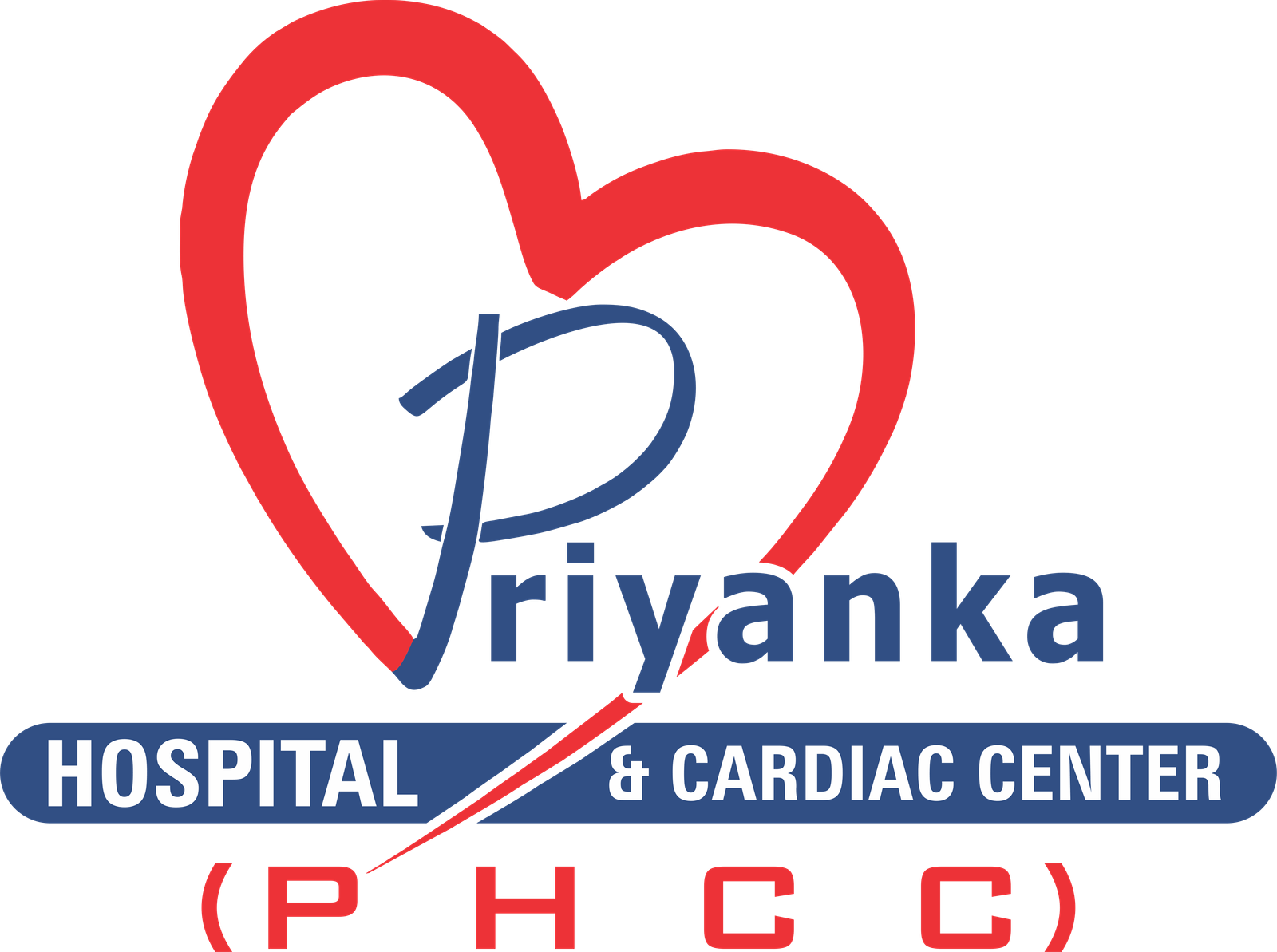Best Gastroenterology Hospital in Jaipur
The Gastroenterology Department in the Priyanka Hospitals is backed by a team of professional and highly qualified Gastroenterologists, which makes the hospital one of the best in Jaipur for gastroenterology treatment. Our highly skilled staff focuses mainly on delivering superior quality health care services to patients with digestive, liver, and pancreatic-biliary diseases.
Gastroenterology is the branch of medicine that deals with the diagnosis and management of diseases of organs of the gastrointestinal tract, lower oesophagus, stomach, small intestine, colon, rectum, pancreas, gall bladder and bile ducts, and liver. Our specialized team of professionals, which is headed by the best liver and gastroenterology professionals in the Tricity, is aimed at providing the best facilities for patients with routine and emergency gastrointestinal and liver disorders.
Equipped with advanced equipment such as high-definition endoscopy and endoscopic ultrasound, our department ensures accurate diagnosis and effective treatment for liver and digestive disorders. Supported by round-the-clock laboratory, ICU, radiology, and emergency services.

Why Choose Priyanka Hospital For Gastroenterology in Jaipur
As the best gastroenterology hospital in Jaipur, Priyanka Hospital offers a comprehensive range of services to address all aspects of gastrointestinal health. From diagnostic testing and medical management to advanced endoscopic procedures and surgical interventions, we provide holistic care to improve patients’ gastrointestinal function and quality of life. When it comes to gastroenterology care in Jaipur, Priyanka Hospital is the preferred choice for patients seeking expert diagnosis, personalized treatment, and compassionate care. Our expert gastroenterologists, comprehensive services, and state-of-the-art facilities make us the best gastroenterology hospital in the city.
What do our Gastroenterologists treat?
Gastroenterologists Doctors at Priyanka Hospital are well-trained in the diagnosis and management of ailments and conditions of the digestive system, which encompasses the organs of digestion and nutrient and waste management. Gastroenterologists treat a wide range of conditions affecting the digestive system, including but not limited to: Gastroenterologists treat a wide range of conditions affecting the digestive system, including but not limited to:
1. Gastroesophageal reflux disease (GERD): A chronic condition characterized by stomach acid flowing back into the esophagus, causing symptoms such as heartburn, regurgitation, and chest pain.
2. Peptic ulcer disease: Ulcers that develop in the lining of the stomach, small intestine, or esophagus due to infection with Helicobacter pylori bacteria, long-term use of nonsteroidal anti-inflammatory drugs (NSAIDs), or other factors.
3. Inflammatory bowel disease (IBD): Chronic inflammatory conditions of the digestive tract, including Crohn’s disease and ulcerative colitis, characterized by inflammation and damage to the gastrointestinal lining, leading to symptoms such as abdominal pain, diarrhea, rectal bleeding, and weight loss.
4. Irritable bowel syndrome (IBS): A type of IBS in which the patient develops pain in abdomen, bloats, has excessive or less gas, changes bowel habits, and has diarrhoea or constipation, mostly due to some types of foods, stress or hormonal changes.
5. Celiac disease: A disease that develops when the immune system attacks the lining of the small intestine after the consumption of gluten found in wheat, barley and rye, and results in poor absorption of nutrients and gastrointestinal problems.
6. Gallbladder disease: Illnesses that involve the gallbladder including the formation of gallstones, inflammation of the gallbladder and other related symptoms like abdominal pain, nausea, vomiting, and jaundice.
7. Liver disease: Gastroenterologists treat a plethora of conditions affecting the liver, for instance, viral hepatitis of B and C, fatty liver, cirrhosis, liver cancer, and autoimmune hepatitis.
8. Pancreatitis: Pancreatitis, which is inflammation of the pancreas that can be either acute or chronic, and can be caused by gallstones, alcohol, and other things. Some of the symptoms include severe abdominal pain, nausea, vomiting and any form of digestive complications.
9. Gastrointestinal bleeding: Gastroenterologists diagnose and manage hemorrhage that originates from the different parts of the alimentary canal such as the esophagus, stomach, small bowel and the large bowel.
10. Colon polyps and colorectal cancer: Gastroenterologists carry out screening colonoscopy to identify and eradicate early stages of cancer in the colon and search for colorectal cancer.
Here are some of the conditions that can be treated by gastroenterologists; Gastrointestinal disorders and diseases can be acute or chronic; simple or complicated; and may or may not require a gastroenterologist’s intervention depending with their severity, cause or presentation.
Symptoms of Gastroenterology Disease
The diseases of the gastroenterology area can be accompanied by various symptoms depending on the type of disease and the stage at which it is in the development process. Some common symptoms of gastroenterology diseases include:Some common symptoms of gastroenterology diseases include:
1. Abdominal pain: Abdominal pain or discomfort is a frequent complaint in various gastroenterology diseases, which can be acute and inconsequent, or chronic and constant. The location, type, and severity of the pain in the abdominal region depends on the cause of the pain.
2. Heartburn: Pain or a burning feeling in the chest or throat, stomach acid or bitter fluid that rises up into the throat, are considered characteristic signs of GERD.
3. Nausea and vomiting: These are some of the gastroenterology diseases that might cause one to feel nauseous or start vomiting; they include gastritis, gastroenteritis, food poisoning, peptic ulcer disease, and bowel obstruction.
4. Changes in bowel habits: Abnormal changes in bowel habits or bowel habits are one of the common signs of gastrointestinal disorders like IBS, IBD, or in certain cases cancer in the colon.
5. Changes in bowel habits: When changes in bowel movements, for example diarrhea, constipation or when the bowel movements are less frequent than usual or of a different texture, it could be as a result of IBS, IBD or even colorectal cancer.
6. Bloating and gas: There are various causes of excessive gas production along with bloating such as poor digestion, food intolerance, bacterial overgrowth in the intestine or celiac disease or small intestinal bacterial overgrowth (SIBO).
7. Rectal bleeding: Rectal bleeding or the presence of bright red blood per rectum is a worrisome sign which may originate from haemorrhoids, anal fissures, inflammatory bowel disease (IBD), diverticulitis or colorectal cancer.
8. Difficulty swallowing: Esophageal disorders that may cause dysphagia include; esophageal strictures, eosinophilic esophagitis, and esophageal cancer.
9. Unexplained weight loss: Weight loss not due to dieting or increased physical activities and which cannot be explained by other causes may be due to various gastrointestinal disorders such as malabsorption syndromes, IBD or gastrointestinal cancer.
10. Jaundice: Jaundice or yellowing of the skin and the eye, coupled with dark-colored urine and pale-colored stool, could be suggestive of liver or biliary tract diseases like hepatitis, cirrhosis, bile duct obstruction, liver cancer, etc.
11. Fatigue and weakness: Fatigue, weight loss and weakness can be attributed to anaemia, nutritional deficiency or local and systemic manifestations of GI disorders like IBD or liver diseases.
These are some of the symptoms that may be attributed to diseases in the gastroenterology system. However, it is worth understanding that many of these symptoms may be shared by different diseases, so the diagnosis and further treatment should be discussed with a doctor.
Explore Our Main Service
FAQs on Gastroenterology
What is Gastroenterology, and what conditions does it involve?
Gastroenterology is a medical specialty focused on the diagnosis, treatment, and management of diseases and disorders of the digestive system, including the esophagus, stomach, intestines, liver, gallbladder, and pancreas. Gastroenterologists are medical doctors who specialize in conditions such as gastroesophageal reflux disease (GERD), peptic ulcers, irritable bowel syndrome (IBS), inflammatory bowel disease (IBD), liver diseases (such as hepatitis and cirrhosis), gallbladder diseases, pancreatitis, and gastrointestinal cancers.
What are the common symptoms of gastrointestinal disorders, and when should I see a gastroenterologist?
Common symptoms of gastrointestinal disorders may include abdominal pain or discomfort, bloating, gas, diarrhea, constipation, nausea, vomiting, heartburn, acid reflux, difficulty swallowing, changes in bowel habits, rectal bleeding, unexplained weight loss, and jaundice. It’s important to see a gastroenterologist if you experience persistent or severe gastrointestinal symptoms, as they may indicate underlying conditions that require diagnosis and treatment.
What diagnostic tests and procedures are used in gastroenterology?
Gastroenterologists use a variety of tests and procedures to diagnose and evaluate gastrointestinal conditions. These may include upper endoscopy (esophagogastroduodenoscopy or EGD) to visualize the esophagus, stomach, and upper small intestine, colonoscopy to examine the colon and rectum, imaging studies such as abdominal ultrasound, CT scans, or MRI to assess the structure and function of the digestive organs, blood tests to check for signs of inflammation, infection, or liver function abnormalities, and stool tests to detect blood, infections, or other abnormalities.
What are the treatment options for gastrointestinal disorders?
Treatment for gastrointestinal disorders depends on the specific condition, its severity, and individual patient factors. Options may include lifestyle modifications (such as dietary changes, stress reduction, and exercise), medications (such as proton pump inhibitors for GERD, antibiotics for bacterial infections, immunosuppressive drugs for IBD, or antispasmodics for IBS), endoscopic procedures (such as polypectomy for colon polyps or dilation of strictures), surgical interventions (such as gallbladder removal or bowel resection), and other therapies tailored to each patient’s needs.
How can I maintain digestive health and prevent gastrointestinal disorders?
Maintaining digestive health involves adopting healthy lifestyle habits and taking preventive measures to reduce the risk of gastrointestinal disorders. This includes eating a balanced diet rich in fiber, fruits, vegetables, and whole grains; staying hydrated by drinking plenty of water; avoiding excessive alcohol consumption and tobacco use; practicing good food hygiene and food safety measures; managing stress through relaxation techniques or therapy; exercising regularly to promote bowel regularity and overall health; and scheduling regular check-ups with a gastroenterologist for preventive care and early detection of any gastrointestinal issues.
Still Have a Question?
If you cannot find answers to your queries, please fill out the enquiry form or call the number below. We will contact you shortly
